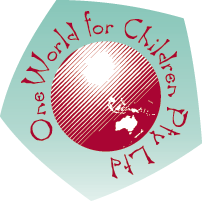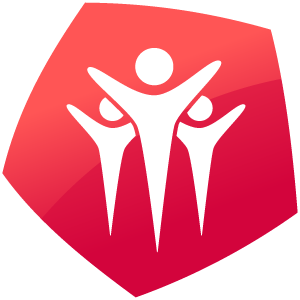What is child development and what skills do children develop at different ages
What is child development?
Child development is a process every child goes through. This process involves learning and mastering skills like sitting, walking, talking, skipping, and tying shoes. Children learn these skills, called developmental milestones, during predictable time periods.
Children develop skills in five main areas of development:
- Cognitive Development
This is the child's ability to learn and solve problems. For example, this includes a two-month-old baby learning to explore the environment with hands or eyes or a five-year-old learning how to do simple math problems. - Social and Emotional Development
This is the child's ability to interact with others, including helping themselves and self-control. Examples of this type of development would include: a six-week-old baby smiling, a ten-month-old baby waving bye-bye, or a five-year-old boy knowing how to take turns in games at school. - Speech and Language Development
This is the child's ability to both understand and use language. For example, this includes a 12-month-old baby saying his first words, a two-year-old naming parts of her body, or a five-year-old learning to say "feet" instead of "foots". - Fine Motor Skill Development
This is the child's ability to use small muscles, specifically their hands and fingers, to pick up small objects, hold a spoon, turn pages in a book, or use a crayon to draw. - Gross Motor Skill Development
This is the child's ability to use large muscles. For example, a six-month-old baby learns how to sit up with some support, a 12-month-old baby learns to pull up to a stand holding onto furniture, and a five-year-old learns to skip.
What is a developmental milestone?
A developmental milestone is a skill that a child acquires within a specific time frame. For instance, one developmental milestone is learning to walk. Most children learn this skill or developmental milestone between the ages of 9 and 15 months.
Milestones develop in a sequential fashion. This means that a child will need to develop some skills before he or she can develop new skills. For example, children must first learn to crawl and to pull up to a standing position before they are able to walk. Each milestone that a child acquires builds on the last milestone developed.
To find out more information about age-appropriate developmental milestones click on a specific age below.
What are typical milestones, or skills, children learn at different ages?
We now know that our brains are not fully developed at birth. In fact, a baby's brain weighs about one quarter (1/4) of what an adult's brain weighs!
The brain grows very rapidly during the first several years of life. During this time, your child is learning all sorts of new skills.
Because children usually acquire developmental milestones or skills during a specific time frame or "window", we can predict when most children will learn different skills. The pages below describe the types of skills children usually learn at different ages.
Childhood Developmentental Milestones:
1 month to 6 months
7 months to 12 months
13 months to 18 months (one year to one and a half years)
19 months to 24 months (one and a half years to two years)
25 months to 30 months (two years to two and a half years)
31 months to 36 months (two and a half years to three years)
3 years to 5 years
Developmental delays
What if my child does not meet a developmental milestone?
Each child is an individual and may meet developmental milestones a little earlier or later than his peers. You may have heard people say things like, "he was walking before he turned 10 months, much earlier than his older brother" or "she didn't say much until she was about 2 years old and then she talked a blue streak!" This is because each child is unique and will develop at his or her own pace.
However, there are definitely blocks of time when most children will meet a milestone. For example, children learn to walk anytime between 9 and 15 months of age. So, if your child is 13 months of age and not yet walking, there is no need to worry if he is crawling and pulling to a stand. He has acquired the skills he needs to learn to walk and may begin walking soon. However, if you have a child 15 months of age who is not yet walking, it would be a good idea to talk with your child's pediatrician to make sure there aren't any medical or developmental problems since age 15 months is outside of the normal "window" or time frame in which children learn to walk.
In this website, we will provide you with some information about these "windows" or blocks of time when children usually develop a skill. We also will share with you some warning signs or "red flags" to watch for that may mean your child is not meeting developmental milestones. We will also give you the names of some books and websites about child development that you may find helpful.
However, whenever you have questions, do not hesitate to ask a professional like your child's doctor, nurse practitioner, or a trained child development or behavioural specialist. There are also several clinical specialists who are specifically trained in various areas of development who can be consulted. These include speech pathologists, occupational and physical therapists, developmental psychologists and audiologists.
How can I help my child meet these developmental milestones?
As parents, we all want our children to succeed and be the best they can be. We know from research that two factors influence how your child succeeds and grows: genes and environment.
One of the factors that influence our child's development is their genetic makeup or "genes." Some people refer to this as "nature." Genes are the genetic material we pass onto our children. Children are born with their "genes" in place. These genes act like a blueprint for what characteristics a child may have. For example, genes determine if a child will have blue eyes or brown eyes; they also determine if he will be left- or right-handed.
The other factor that influences child development is the environment. This includes experiences children have in their home, school and community environments. Some people refer to this as "nurture." The environment can either improve or harm a child's genetic blueprint. For example, malnourished children who live in third world countries may not reach their IQ potential because of the impact of their environment on their brain development.
We often think we need to run out and buy special toys, music and games to stimulate our child's development, but we have to remind ourselves that it is more important to provide the following, every-day activities you can do with your child to encourage brain development.
- Give your child lots of love and attention. No matter what a child's age, holding, hugging, and listening are important ways to show your child they matter.
- Interact with your child by talking, singing, playing, eating, and reading with your child. Your child will grow up feeling special and important to you. You will also learn a lot about your child's interests and skills.
- Read, read, read. Research has shown that children who are read to by their parents have a larger vocabulary than other children. Reading also provides children with new perspectives about the world we live in.
- Learn some simple parenting skills for helping your child to learn how to behave. The most important parenting skills are having consistent rules, rewarding behaviours you want to see your child do more of, and having consequences for behaviours you do not want your child to continue to do.
- Limit TV time and video time to no more than 1-2 hours of educational viewing per day.
- Ask for help when you need it from your spouse, partner, family, friends, and your child's doctor or nurse practitioner. Parenting is wonderful but it is not always easy.
What can I do to improve my child's motor development?
Motor development is a very important part of growing up. Motor activities help children learn how to use their bodies, gain confidence as they master skills, and prepare them for school. Here are a few suggestions to promote motor skills. Remember to always give children a safe place to play and lots of repetition to learn and master skills.
Infant
- Lay your baby on the floor on her tummy. Lay down on the floor with your baby. Sing and talk to her while she is on the floor. Supervise your baby when she is playing on her tummy. Supervised tummy time play should occur several times throughout the day for a few minutes at a time, or as long as your baby will allow.
- While playing, hold toys about 8 inches from your baby's face. Move the toys slowly from side to side. Watch your baby follow the toy with his eyes and reach for the toy.
- Hold your baby and go for a walk. Hold your baby and gently sway and dance.
- The best exercise for your baby is playing on the floor. Baby walkers and exersaucers do not provide exercise or promote walking and can be a safety hazard. However, if you do use this equipment, limit time in exersaucer or baby walker to 10-15 minutes a day.
Toddler
- Pull-apart toys, such as pop beads help promote hand skills and arm coordination. Other toys that promote coordination and hand skills are stacking rings, stacking blocks, rolling a ball or playing with Tupperware.
- Climbing, crawling and exploring are all fun activities, and they promote overall strength and coordination. You can climb and crawl at the park, or throw pillows on the floor for fun crawling time.
- Playing with play dough helps to promote hand skills and texture tolerance.
Preschooler
- Playgrounds offer many fun opportunities for swinging, climbing, walking on different surfaces, running around friends and just moving around. These activities are important for promoting body awareness, strengthening and overall coordination.
- Arts and crafts at this age help to promote hand skills, sequencing, problem solving and foster a sense of creativity. Use whatever items you have around the house. Keep in mind that the process and creativity are the most important part of crafts, not what the end product looks like.
- Provide your child with the opportunity to use crayons even if she child cannot write or color a picture yet. Scribbling is the first step to writing and it helps the child learn how to hold writing utensils.
- Playing with play dough helps with fine motor skill development (e.g. holding a pencil or guiding a fork).








